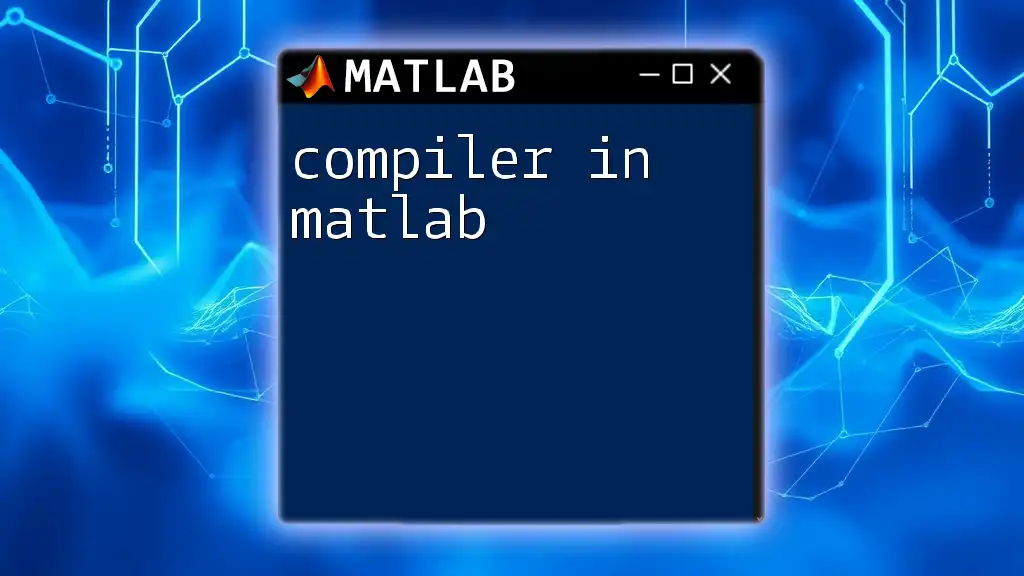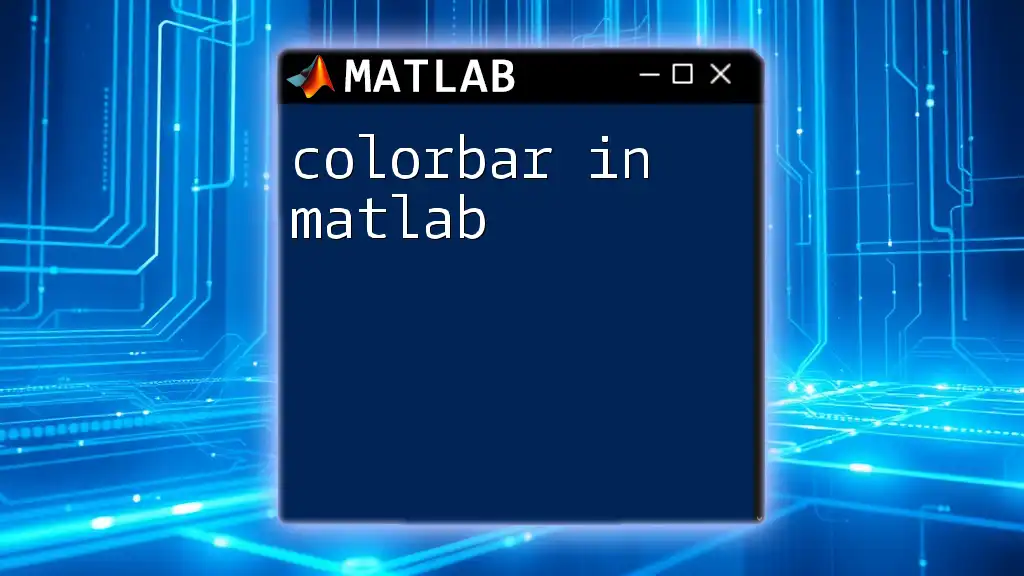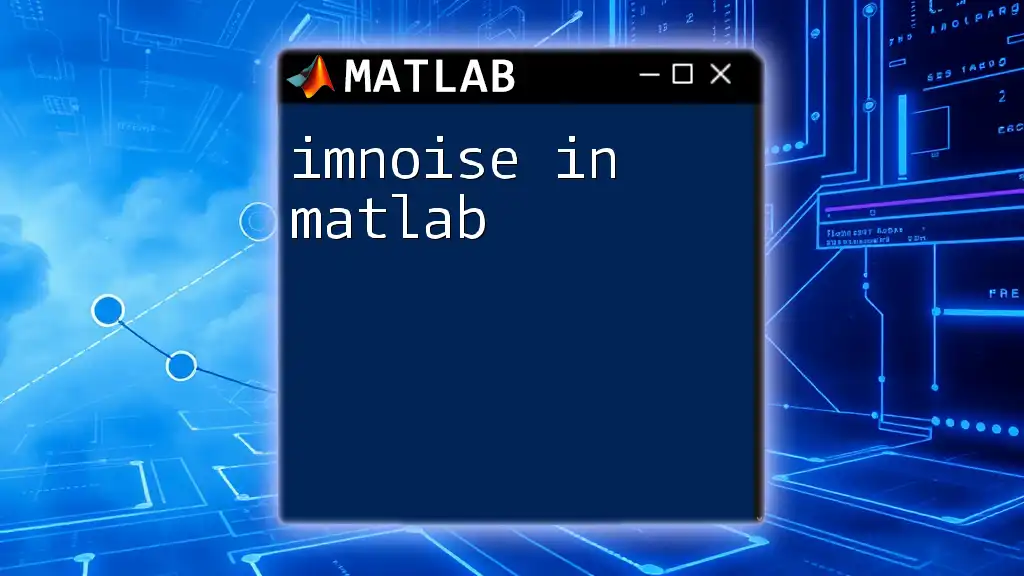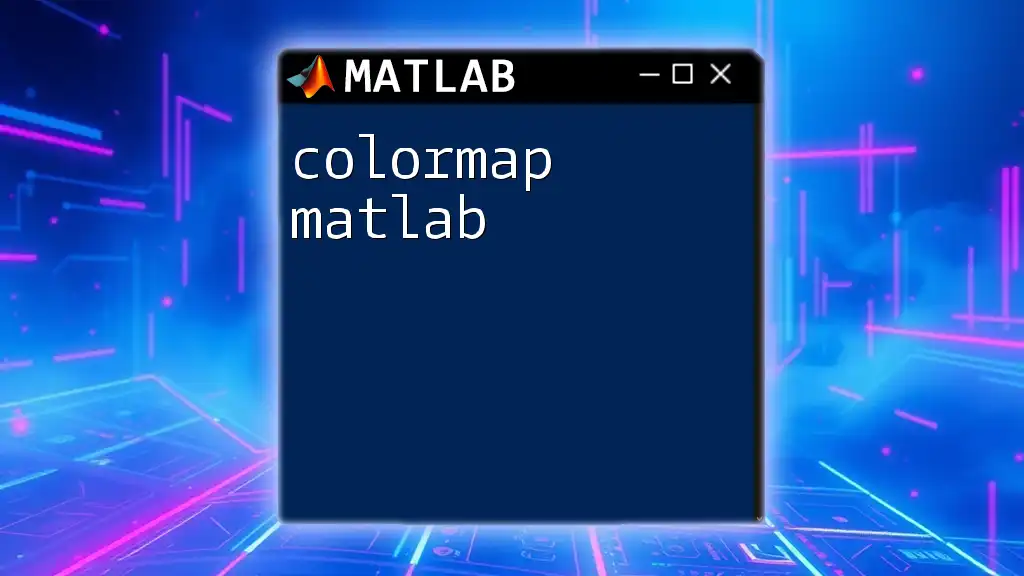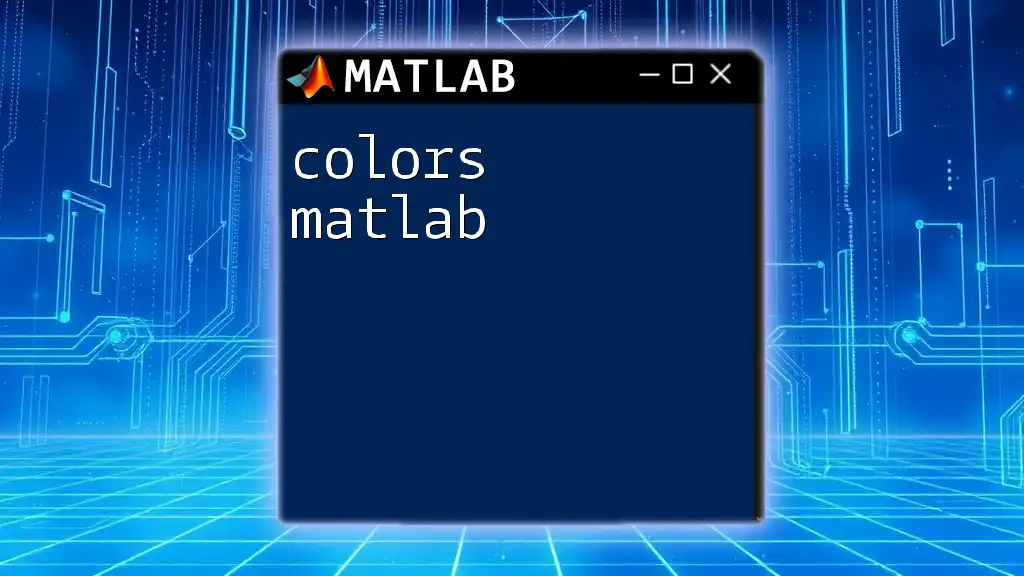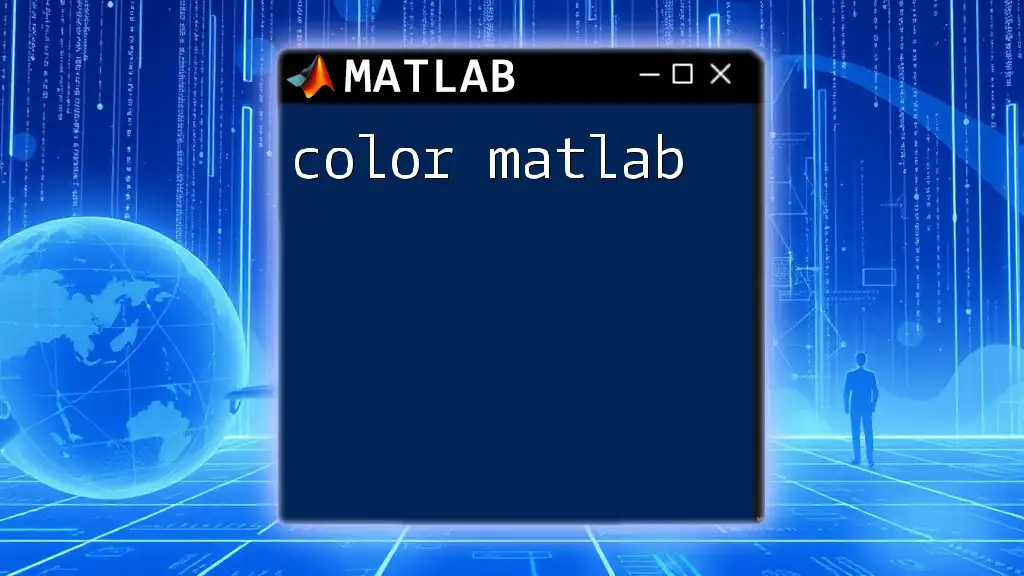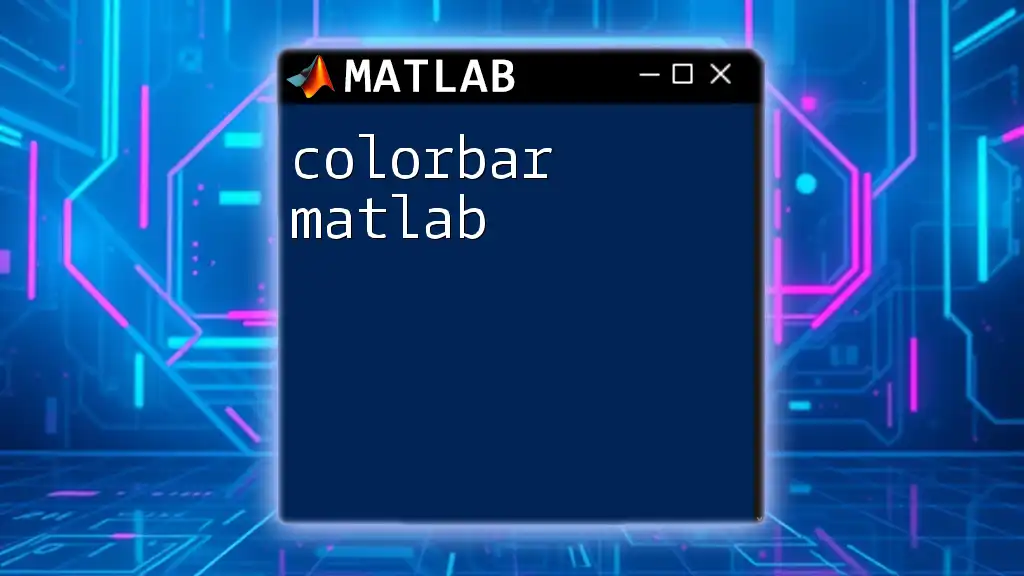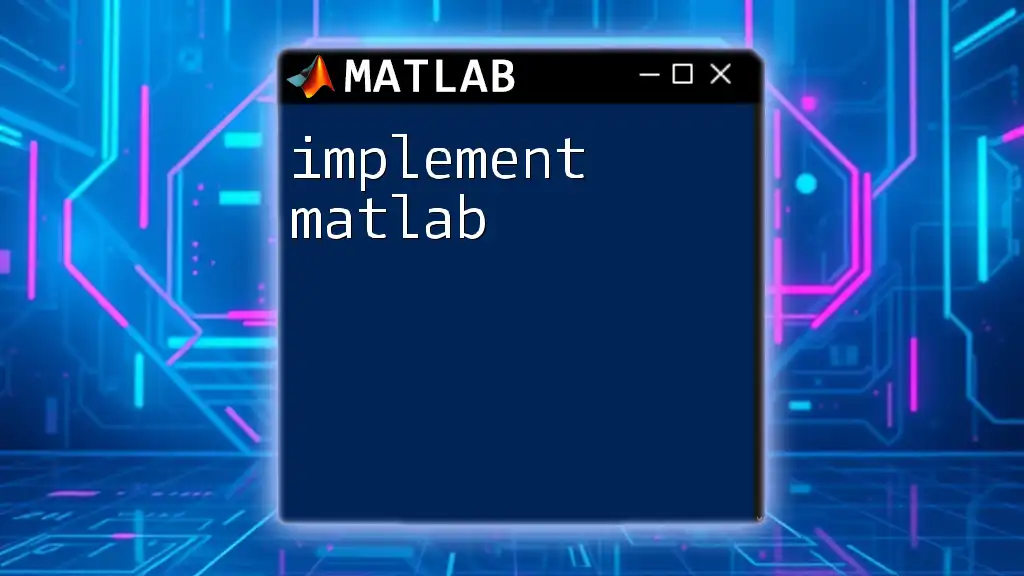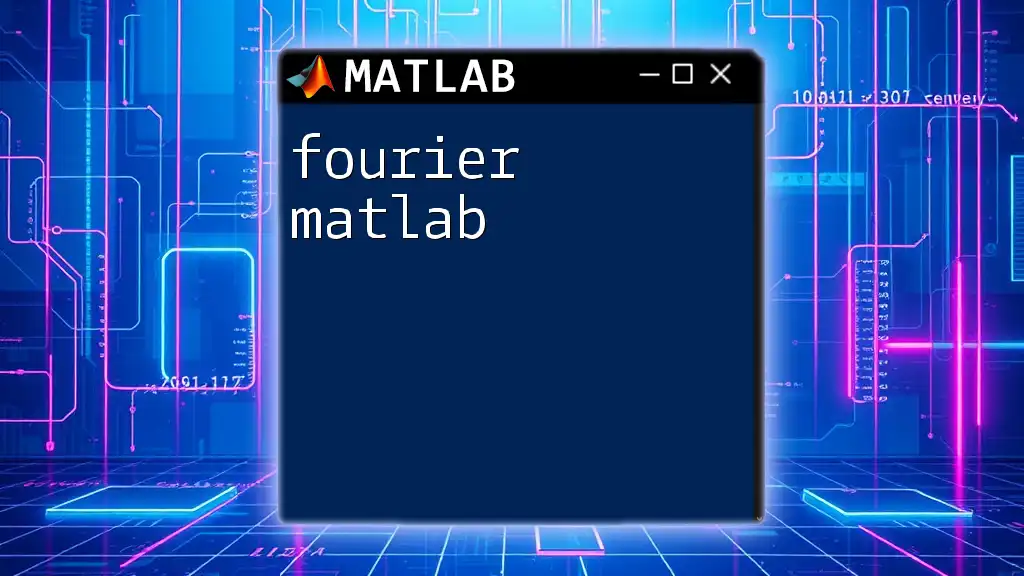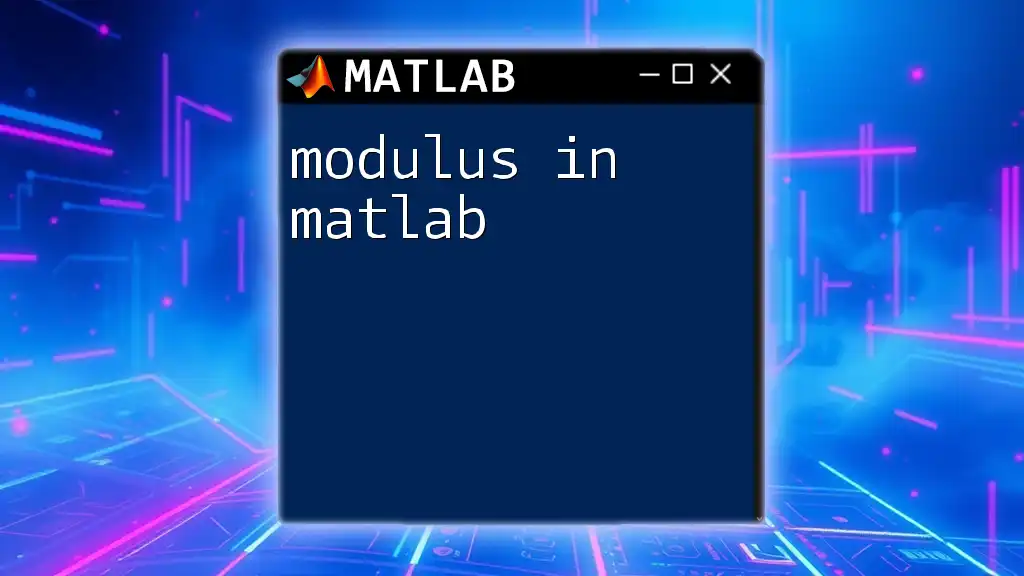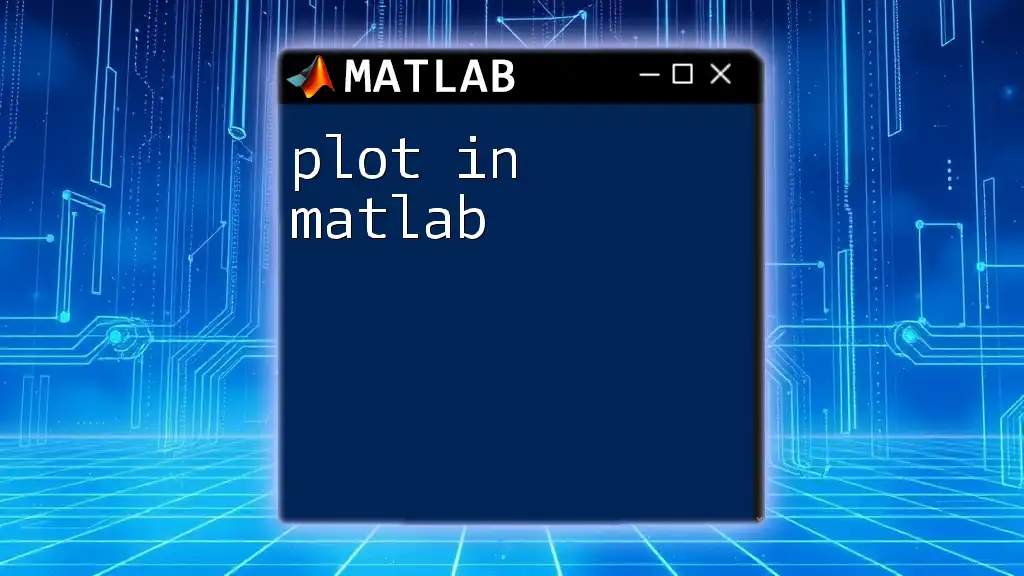In MATLAB, the term "compiler" refers to the MATLAB Compiler, a tool that allows you to convert MATLAB applications into standalone executables or software components that can run without requiring MATLAB to be installed.
% Example of compiling a MATLAB function
% Compile the function 'myFunction.m' into a standalone application
mcc -m myFunction.m
Understanding the MATLAB Compiler
What is the MATLAB Compiler?
The MATLAB Compiler is a powerful tool that allows developers to convert MATLAB code into standalone applications, shared libraries, or components that can be integrated with other programming languages. The primary purpose of the MATLAB Compiler is to optimize code performance, making it independent of the MATLAB runtime environment. This ensures that users can execute applications without needing a full MATLAB installation.
Compiling MATLAB code enhances performance significantly, especially for intensive computational tasks. This is particularly valuable in professional scenarios where quick execution and a robust end-user experience are crucial.
Key Features of the MATLAB Compiler
The MATLAB Compiler boasts several key features:
- Compatibility with a vast array of MATLAB functions and toolboxes, allowing users to leverage existing scripts and functions in their compiled applications.
- Creation of standalone applications, which means users can run applications without having MATLAB installed on their systems.
- Integration capabilities with external programming languages, such as C, .NET, and Java, facilitating the development of more complex software solutions.
- Licensing considerations are essential when distributing compiled applications, as users must comply with licensing requirements for MATLAB and any included toolboxes.
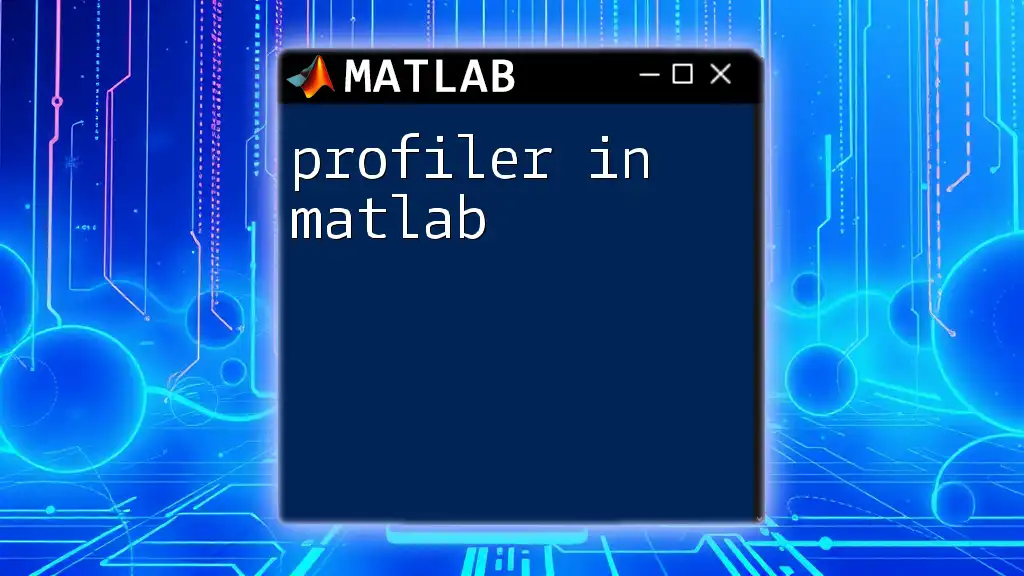
Getting Started with the MATLAB Compiler
Prerequisites for Using the MATLAB Compiler
Before diving into the compiler, ensure you have the following:
- A compatible MATLAB version along with the necessary toolboxes that support compilation features.
- A basic understanding of MATLAB scripting and function creation, as this will ease the transition to compiling applications.
Installing the MATLAB Compiler
Installing the MATLAB Compiler involves straightforward steps. First, check if the Compiler is included in your MATLAB installation package. If not, you'll need to install the appropriate toolbox via the Add-Ons menu in MATLAB.
Once installed, verify the setup by entering the following command in the MATLAB Command Window:
ver
This will list the installed products and confirm the presence of the Compiler.
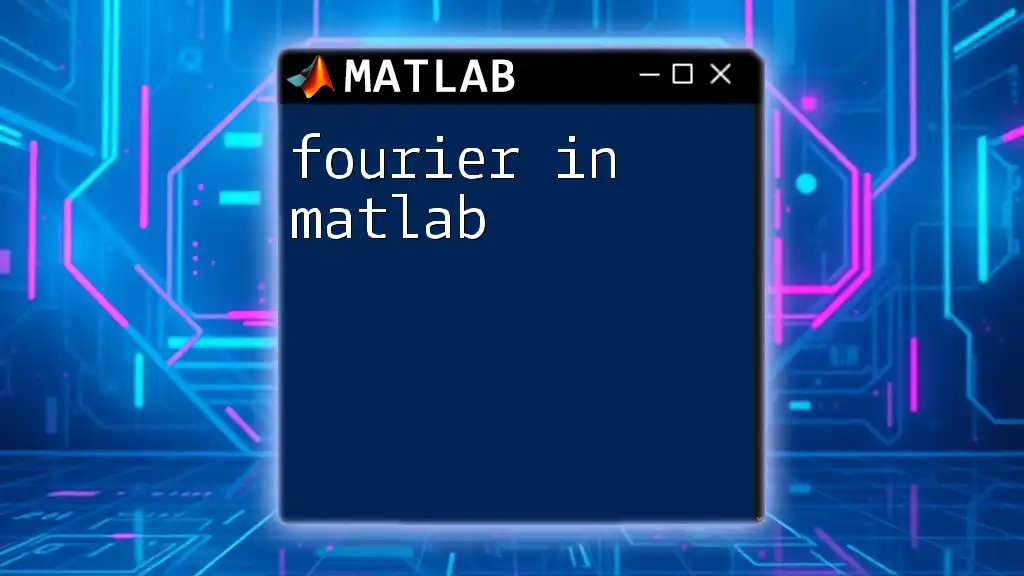
Compiling MATLAB Code
Preparing Your MATLAB Code for Compilation
To maximize the effectiveness of the compiler, it's essential to prepare your code adequately:
- Write efficient MATLAB code by ensuring clarity and removing unnecessary operations.
- Organize functions and scripts logically to promote reusability and reduce dependencies.
- Handle external files and dependencies carefully. Using functions like `fullfile()` and relative paths can help manage file locations effectively.
Compiling Your First MATLAB Application
Compiling your first application is a straightforward process. Let's take a simple MATLAB script, `myscript.m`, as an example:
% Example MATLAB script: myscript.m
disp('Hello, World!');
To compile this script, you can use either the command line or the graphical user interface (GUI) available in MATLAB. Using the MATLAB GUI, navigate to Apps > Compiler and follow the prompts to select your script. Alternatively, using the command line is efficient:
mcc -m myscript.m
This command tells MATLAB to compile `myscript.m` into a standalone executable.
Working with Command-Line Compiler
Using `mcc` Command
The `mcc` command is the core command for compilation in MATLAB. It provides a flexible way to compile various types of files (scripts, functions, etc.), and its usage includes various options that can be tailored to suit your needs.
For example, to compile `myscript.m`, use:
mcc -m myscript.m
Important Flags
Understanding the options available with the `mcc` command is crucial. Here are some common flags:
- `-m`: This flag specifies the main application to be compiled.
- `-a`: This flag allows adding files or dependencies that the compiled application may need.
- `-d`: This specifies the output directory for the compiled application.
Here's an example command using multiple flags:
mcc -m -a mydata.dat -d output_folder myscript.m
This command compiles `myscript.m` while including `mydata.dat` and directing the output to the specified folder.
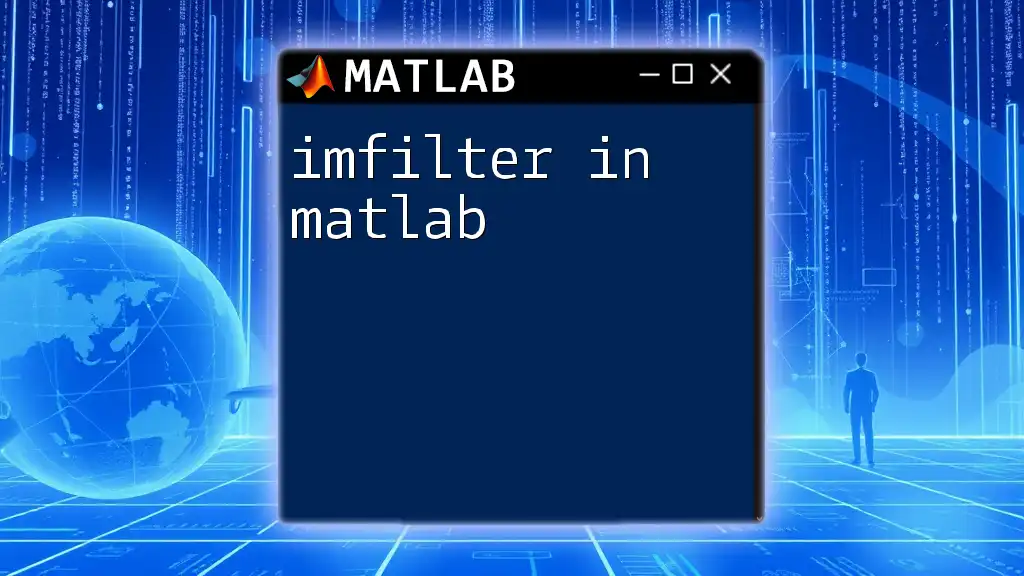
Advanced Compilation Options
Creating Standalone Applications
Creating standalone applications expands the usability of your MATLAB code. Standalone applications enable end users to run a program without any dependence on the MATLAB environment.
To create a standalone application, use the Application Compiler which provides a guided process. You can select your entry-point file, add files, and configure application settings (like icons and splash screens).
Packaging MATLAB Apps for Distribution
Once your application is ready, you can package it for distribution using the Application Compiler. The Application Compiler allows you to create a setup installer that bundles your MATLAB code along with all required dependencies.
Prepare your packaging by carefully selecting additional files, and ensure you conduct tests to validate the application's performance post-packaging.
Here’s a simplified code snippet to help you set up an installer:
% Example MATLAB code to create an installer
appCompiler = AppCompiler();
appCompiler.createInstaller('myapp.app', 'installerName');
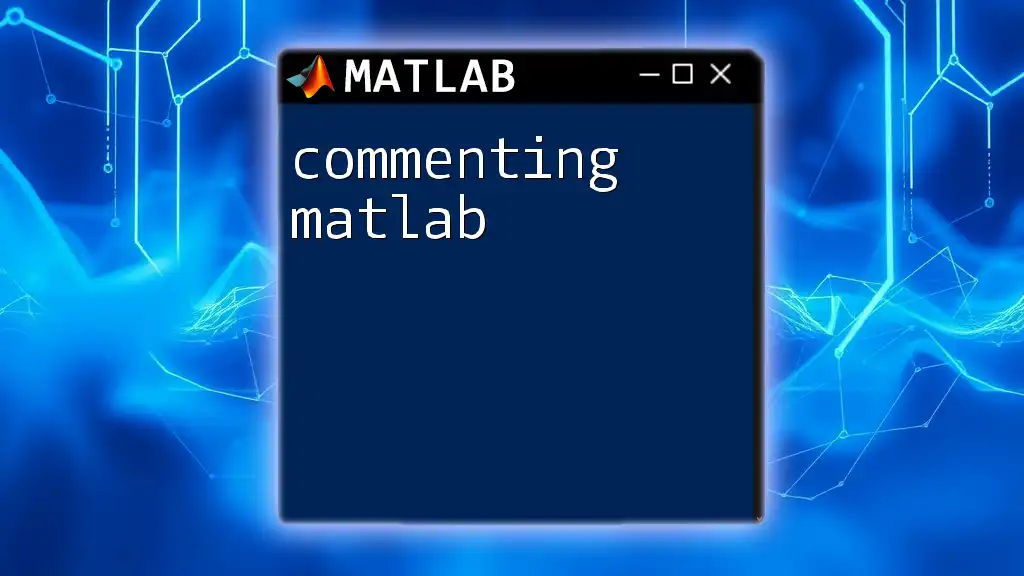
Debugging Compiled Applications
Common Issues During Compilation
Even experienced developers encounter issues during compilation. Here are common pitfalls:
-
Undefined function or variable: This often occurs due to missing dependencies. Ensure all necessary files are included in the compilation process.
-
File not found errors: Verify that paths to external files are correct. Use functions like `fullfile()` to construct proper paths.
Debugging Techniques for Compiled Code
Effective debugging techniques are essential for refining your compiled applications. When you compile your code, it’s helpful to include debug information. Use the `-g` flag during compilation, allowing for more straightforward troubleshooting later.
Here’s an example of invoking a debug compilation:
mcc -m -g myscript.m
This command enables a debug version of the application, providing insights into runtime behavior and variable values.
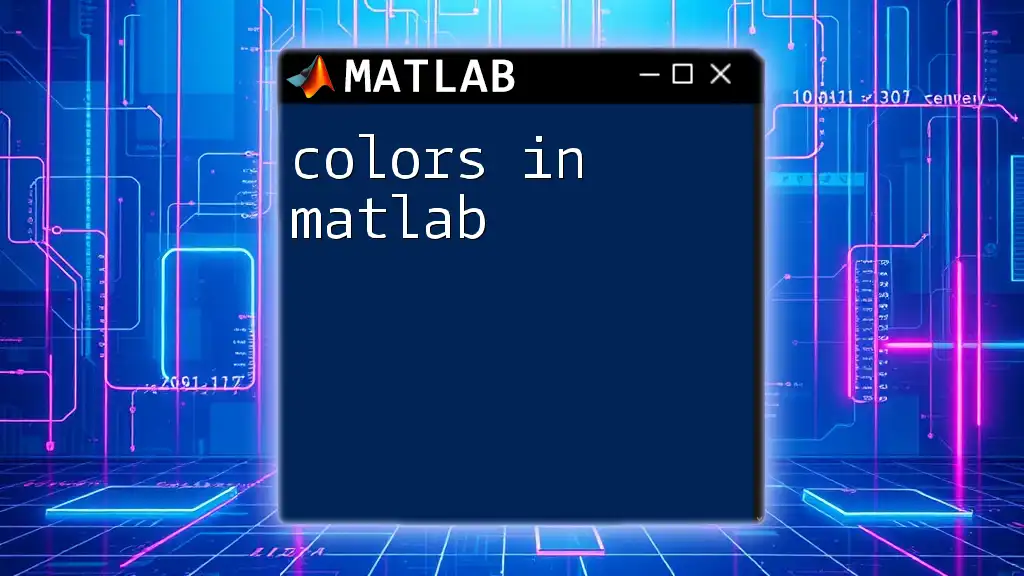
Optimizing Performance of Compiled Applications
Tips for Improving Compilation Efficiency
To optimize the performance of your compiled applications, adhere to best practices in coding. This includes using vectorized operations instead of loops when possible, as they are often executed faster in a compiled context.
Additionally, profiling your MATLAB code using the built-in Profiler before compilation can reveal bottlenecks and enhance the efficiency of the resulting application.
Leveraging MATLAB Compiler SDK
MATLAB Compiler SDK allows further enhancement by enabling integration between MATLAB and other programming languages. This integration permits building APIs from MATLAB compiled code that can be utilized in environments such as Python or C#.
For example, to use a compiled MATLAB function in Python, one might use the following code snippet:
# Example Python code calling a compiled MATLAB function
import matlab.engine
eng = matlab.engine.start_matlab()
result = eng.myscript()
This approach provides flexibility and power, effectively extending the capabilities of MATLAB applications beyond their native environment.
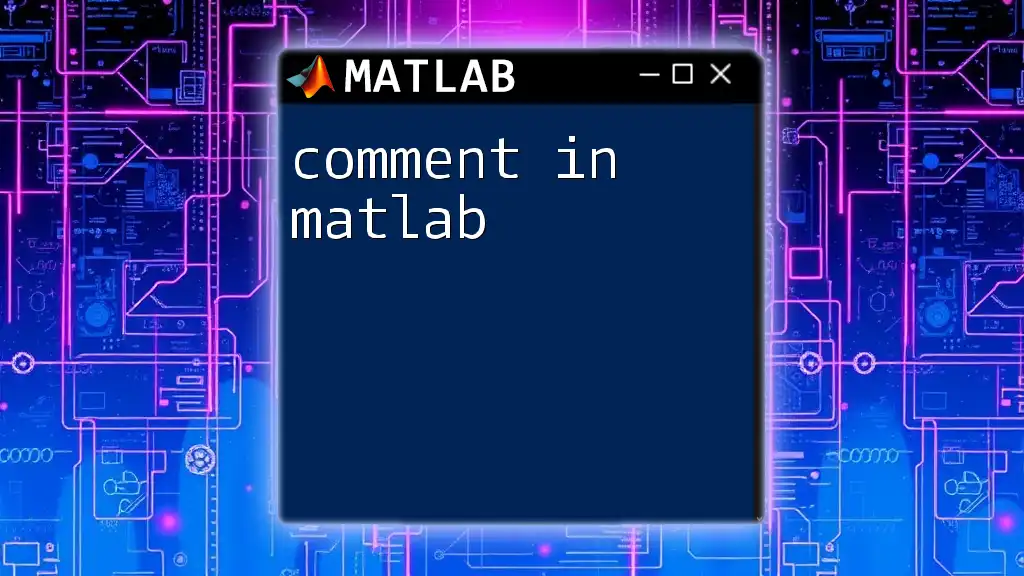
Conclusion
The MATLAB Compiler is an invaluable tool for developers looking to optimize their MATLAB code into efficient standalone applications. By understanding how to effectively prepare code, compile applications, manage errors, and package distributions, users can create robust software solutions that leverage the power of MATLAB. Readers are encouraged to explore the compiler capabilities and experiment with their projects, enhancing both performance and usability.
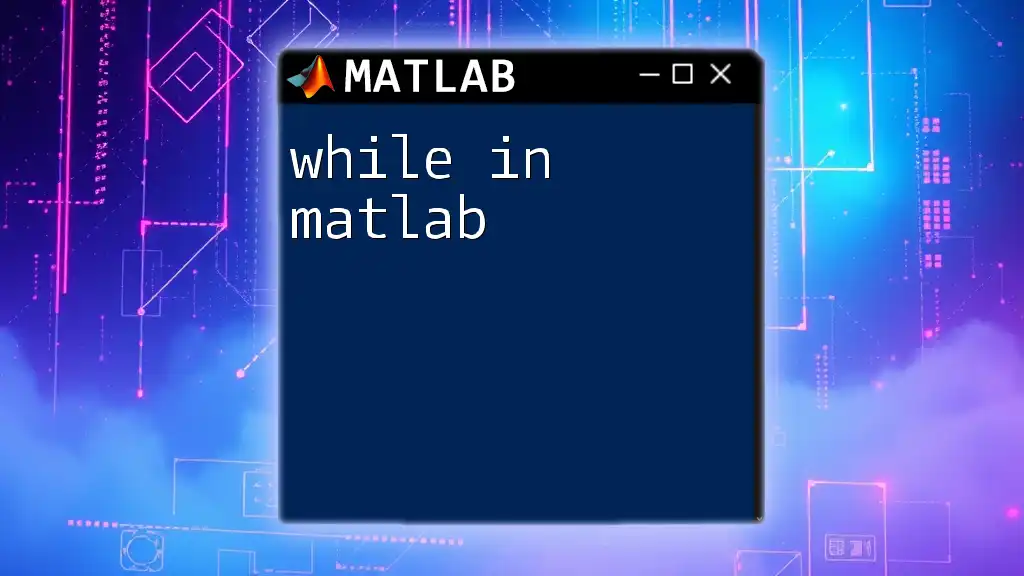
Additional Resources
For further learning, it’s beneficial to dive into the official MATLAB documentation, explore recommended tutorials, and engage in community forums. These resources provide ongoing support and insights, paving the way for mastering the compiler in MATLAB.

